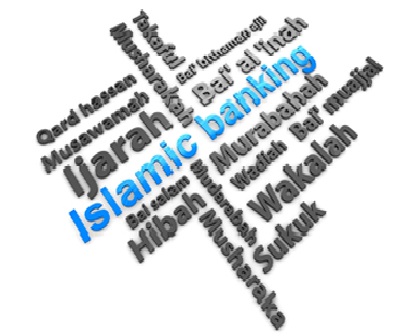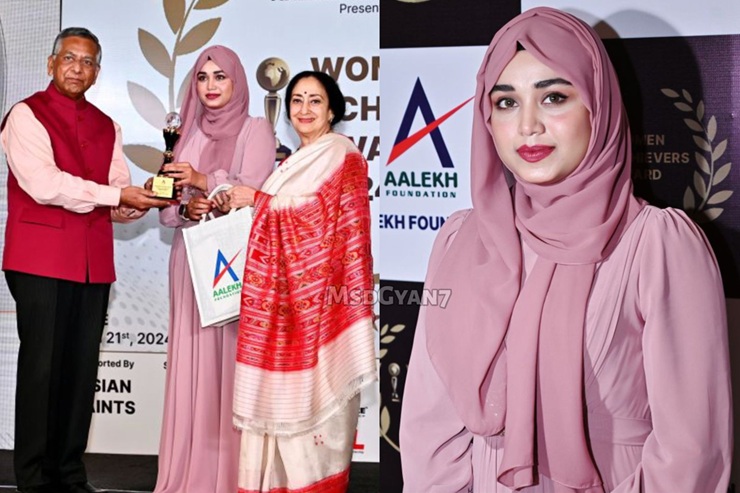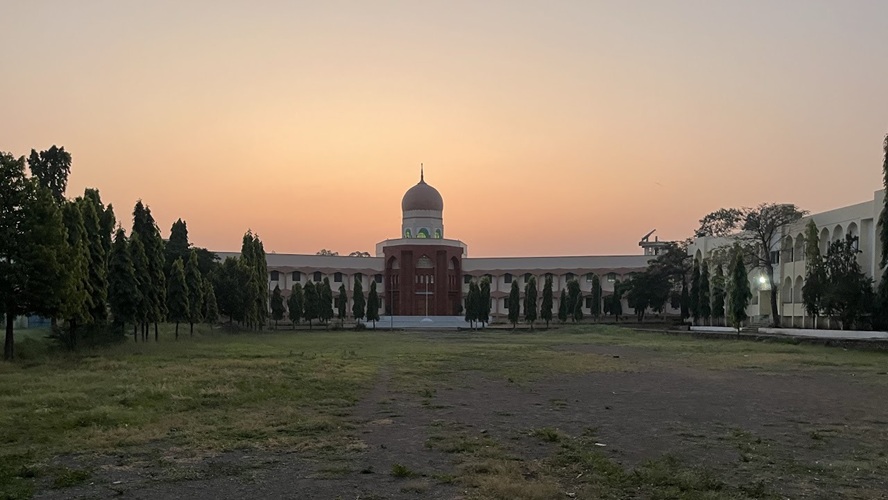
Mufti Shahbaz Alam
Shariah Scholar in Islamic Finance (CSAA)
By Shahbaz Alam Nadwi
The global Islamic economy has gained an increasingly strong foothold in the world economy, driven by increasing Muslim consumer demand for dedicated products and services compliant with Islamic law that has developed the global sub-sectors of Halal food, Islamic financial services, cosmetics and pharmaceuticals, modest fashion, Muslim friendly travel, and Islamic-themed media.
According to the new World Capital Advisors (“NWCA”), the global Islamic economy, estimated to be worth USD$3.8 trillion by 2022. The global halal food and beverage market is expected to reach USD 1063.11 billion by 2030. The global halal food industry is expected to witness a CAGR of 3.6% during the forecast period owing to the increasing Muslim population and their substantially increasing expenditure on food & beverages, which is considered the main driving force of this market. Now as according to Marketdata forecast, the halal food and beverage market is projected to record a CAGR of 6.6% during the forecast period (2022-2027)”.
According to GlobeNewswire, the global halal food market reached a value of US$ 1,978 billion in 2021. Looking forward, the market is projected to reach US$ 3,907.7 billion by 2027, exhibiting a CAGR of 11.24% during 2022-2027. The world’s 1.9 billion Muslims spent the equivalent of $2 trillion in 2021 across the food, pharmaceutical, cosmetics, fashion, travel, and media/ recreation sectors, according to a report produced by Dinar Standard with the support of Dubai Economy and Tourism (DET), global Muslim spending in 2022 is forecasted to grow by 9.1 percent for the various Islamic economy sectors, excluding the Islamic finance sector.
Figure 1: The market size of global Halal economy sectors

Source: Salaam Gateway’s the State of the global Islamic economy report 2016/17 and 2017/2018.
Their massive population and the emergence of India as the world’s largest economy after China, offers a great opportunity for marketers within the country as well as outside India and outside the country.
In the Halal food industry, The top five nations exporting to Organisation of Islamic Cooperation (OIC) countries are Brazil at $16.2 billion; India at $14.4 billion; USA at $13.8 billion; Russia at $11.9 billion; and Argentina at $10.2 billion, according to the State of the Global Islamic Economy Report 2020-2021—an annual study produced by US-based research company Dinar Standard and supported by Dubai Islamic Economy Development Centre.( tradearabia news)
India’s contribution towards the global Halal industry is commendable. plays a vital role in the global Halal industry.
The halal industry is in its infancy in India due to it having the third-largest Muslim population in the world, but it still lacks the level of business ecosystem and awareness needed to achieve the true potential of its halal market, as mentioned in Salaam Gateway. Despite an estimated US$66 billion spent by 180 million Muslims domestically in 2018 on food, pharma, cosmetics, travel, clothing, and recreation and culture, according to data from growth strategy and advisory firm, Dinar Standard, the country is still considered to have a huge untapped market for halal products” and there is a need to create awareness of halal food.
According to Sachar comity India is home to more than 175 million Muslims and has the third-largest community of Muslim consumers in the world after Indonesia and Pakistan. But its market regarding the choices of Halal-endorsed products among mainstream brands is still highly untouched. So need to increase the awareness in recent years among Muslim consumers about what they see as religious obligations has expanded the demand for Halal items. Indian Muslims have 15 per cent share in the consumer market, going by their population.
Muslim have the dual reasons for selecting the neighbouring outlet, first is quality and second is Halal authenticity. Muslim can also not believe all vegetarian products as Halal in India due to unnamed and unspecified processing and in fear of mixing of some other Najis elements. The reason why Muslims are enjoined to consume only Halal products is because, in Islam food is an important part of daily life, and religious requirements with regards to foods carry a special significance. Muslims eat and consume to keep themselves in good health and spirit. It is important to note that in Islam, eating is also considered Ibadah, or act of worship. Halal foods are clean and do not bring any harm to persons who consume them. To ensure the acceptance of Ibadah by Allah, one of the requirements that every Muslim must follow is to eat Halal foods, and to shun outright Haram food like pork or liquor.
Consequently, an exclusive and most faithful customer’s demand for Halal products approximately 10% of total consumption exists in the Indian market. Major food product-wise estimated Muslim demand is shown in the given table. and India has a largest Muslim Population country.
Challenges and Opportunities
There are so many challenges in the halal industry now in India, India must tackle this challenge properly. one of the problems raised by previous halal research is the lack of halal awareness amongst the players about the halal concept and understanding of the ingredients, sources, processing, and storage. and there is a lot of misconception and lack of understanding by Muslims. also, there is a lack of consumer awareness among Muslims. as well as the weakness of the policy of halal certification and logo. Past studies have shown that there is a possible lack of awareness and understanding among the workforce in the halal industry. and there are no unified Halal food standards, with many scattered efforts at standardization from the private sector as well as government bodies. Standards serve as both expectation indicators and quality producers’ offerings. If this issue is not resolved, there will continue to be a mismatch between halal standards offered by regulating bodies around the world and will continue to be a mismatch between the services delivered, which will result in increased dissatisfaction. most important thing is that the lack of clear labelling and halal food regulation is limiting Muslim consumers to spend on halal products. as well as Low trust due to lack of regulated certification could be increased if a halal logo is introduced. (Estimated Consumption of Food Products by Muslims in India (2011-2012) As According to India’s premier halal certification agency Jamiat Ulama-I-Hind Halal Trust agree that “the biggest challenge is “non-vocalization” of demand by Indian consumers for authentically halal-certified products. Until recently, consumers mostly demanded halal certification for meat products only”. Finally, the large size of the food market is still unorganized in India. Most people prefer to purchase food products from neighbouring retail outlets due to uncertainty in the quality of packaged and processed foods. Packaged food demand is mostly focused on metropolitan and urban areas. Muslims have the dual reasons for selecting the neighbouring outlet, first is quality and second is Halal authenticity.
But there are always room for improvement. Industry players and agencies need to address some weaknesses in policies and their implementation. Industry players especially producers were noted for their lack of professionalism and short-term business perspectives. To enhance its competitiveness. apart from that the industry needs to further incorporate advanced business processes and practices designed to better serve the rising expectations of customers, suppliers, and other stakeholders. As well as training programs are very much needed to provide new skills in halal management and Shariah knowledge for human capital development for the halal industry in India, and different types of halal training programs need to be conducted in India.
The important thing is that we live in the era of industrial revolution 4.0 (IR4.0) and the Internet of Things (IoT), where everything was inter-connected digitally and databases are invaluable assets. Traditional retailers and conventional banking are now struggling to compete and cope with new competitors
armed with online shopping platforms and fintech respectively. India should explore and pioneer this digital transformation and capitalize on this technology to penetrate the borderless market globally by allocating financial aids.
Conclusion
There are various business opportunities in this industry since the market is flooded with potential investors, entrepreneurs, and global consumers. There are various sectors gaining impetus due to Government policies, changes in consumer’s tastes and preferences, and higher levels of disposable income. Finally, also In the Food Supply Chain India has a huge opportunity to become a leading global food supplier if only it has the right marketing strategies and of course agile, adaptive, and efficient supply chain. India has diversity in terms of its population with several religious groups with different food habits and culture. This diversity should be used to advantage to become the Halal Food Hub, the Organic food hub, the Vegetarian food hub, and the Seafood hub among others. Overall, India’s food value chain is poised to create multiple opportunities for investment and employment in storage infrastructure, farming, retail and quality control.
———————————————————————————————————————-
Shahbaz Alam Nadwi is currently pursuing his PhD in Islamic finance at the Universiti Utara Malaysia and was previously a research assistant at INCEIF and ISRA.






0 Comments